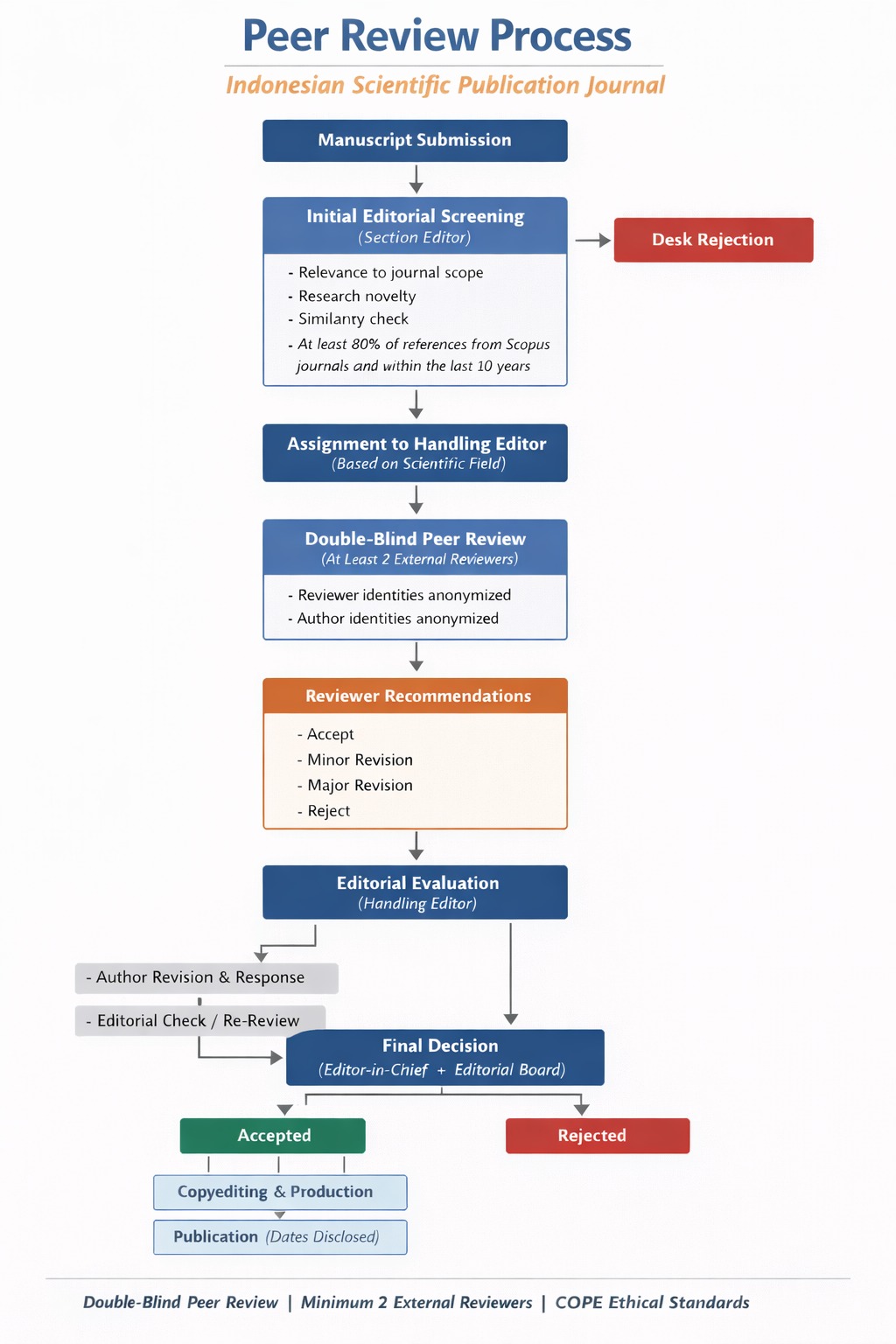Peer Review Process

Peer-Review Process
Psychosocia: Journal of Applied Psychology and Social Psychology follows a rigorous and transparent review process to ensure the quality and credibility of the published articles. The journal adopts a double-blind (double-anonymous) peer-review type, where the identities of both the authors and reviewers are kept anonymous during the review process.
Submission and Initial Evaluation
All manuscripts submitted to Psychosocia undergo an initial evaluation by the editorial team to assess their suitability and compliance with the journal's scope and guidelines. Manuscripts that pass the initial evaluation are assigned a unique identification number for further processing.
Assignment to Handling Editor
Manuscripts that pass the initial screening are assigned to a handling editor based on the manuscript's subject area and the editor’s expertise. The handling editor performs a more detailed evaluation to ensure the manuscript's suitability and quality.
Peer Reviewer Selection
The handling editor identifies and invites a minimum of two subject matter experts to review the manuscript. Reviewers are selected based on their expertise, publication history, and availability. While authors may suggest potential reviewers, the final selection is determined by the handling editor to maintain objectivity.
Double-Blind Review Process
Psychosocia ensures a double-blind peer-review process, where the identities of both authors and reviewers are concealed. This maintains fairness and minimizes potential biases in the evaluation process.
Review Criteria
Reviewers are asked to assess manuscripts based on the following criteria:
- Originality and significance of the research
- Methodological soundness and rigor
- Clarity of presentation and writing quality
- Relevance to the field of applied and social psychology
- Ethical compliance with research standards
Constructive feedback and suggestions for improvement are strongly encouraged to assist authors in enhancing their work's quality.
Reviewer Feedback and Editorial Decision
Reviewers submit detailed reports, including comments on strengths, weaknesses, and suggestions for improvement, along with their recommendations (accept, minor revision, major revision, or reject).
The handling editor synthesizes these reports and makes a recommendation to the Editor-in-Chief.
In cases of conflicting reviews, a third reviewer may be consulted.
The Editor-in-Chief makes the final decision based on all available information.
Communication with Authors
Authors are informed of the editorial decision along with anonymized reviewer reports. Manuscripts requiring revision are returned with clear instructions for improvement and a deadline for resubmission.
Revision and Re-Evaluation
Authors have three weeks to revise their manuscript and must submit a point-by-point response to reviewer comments alongside the revised document. The handling editor reassesses the revised manuscript and, if necessary, seeks further input from the original reviewers.
Final Decision
After re-evaluation, the Editor-in-Chief makes the final decision on acceptance or rejection. Manuscripts that fail to meet the required changes or quality standards are rejected.
Production Process
Accepted manuscripts undergo copyediting, typesetting, and proofreading to ensure consistency and professionalism. Authors are given a final opportunity to review proofs before publication.
Confidentiality
Psychosocia maintains strict confidentiality throughout the peer review process. Manuscripts and their contents are treated as confidential documents, and reviewers must not disclose any information to unauthorized individuals.
Review Process Improvement
Psychosocia continuously seeks to improve its review process. Feedback from authors and reviewers is invaluable in this endeavor, and the journal welcomes constructive suggestions to enhance review efficiency and fairness.
Contact
For inquiries or questions related to the review process, please contact the editorial team at [email protected] .
This detailed and transparent peer review process ensures that all published articles meet the highest academic standards and significantly contribute to the advancement of applied psychology and social psychology.




